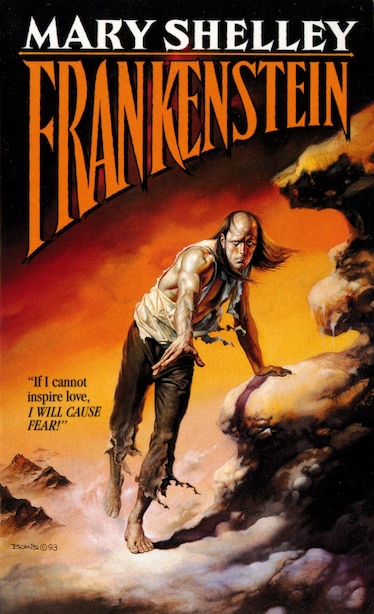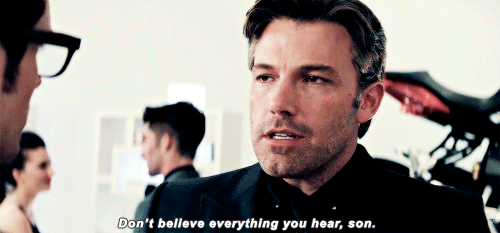Even if you’ve never actually read Frankenstein, you’re likely familiar with the basic narrative
Mary Shelley’s contribution eventually became Frankenstein, a seminal science fiction novel that remains deeply relevant two centuries later. Today, I’m going to write a text with plenty to say about life and society.
As an intellectual in the early 19th century, Mary Shelley couldn’t help but be influenced by the Enlightenment, a cultural movement that was characterized by the weight it placed on scientific enquiry, reason, and intellect. But, like her husband Percy Bysshe, she was also a Romantic, and believed in the importance of nature and emotion. The tussle between scientific progress and the "natural order of things" was something the two discussed at length with their friends, and that conflict takes center stage in Frankenstein. In the 18th and 19th centuries, science was considered the zenith of human endeavor, almost to the exclusion of all else.
In the fictitious letter that bookends Frankenstein, arctic seafarer Robert Walton echoes this sentiment, writing, "One man's life or death were but a small price to pay for the acquirement of the knowledge which I sought." Ironically, Victor Frankenstein would likely agree with Walton’s assessment. In chapter three, he vows, "I will pioneer a new way, explore unknown powers, and unfold to the world the deepest mysteries of creation." But, as his grisly fate ultimately proves, the pursuit of knowledge comes with risks. Though, at first, Victor considers his Creature a triumph, it quickly becomes his undoing, murdering Frankenstein’s brother William, and ultimately leading the scientist on a chase to the North Pole, where he dies of hypothermia. Today, we live in another exciting time for technology and science, with the fields of artificial intelligence and genetics pushing frontiers and breaking down barriers. Hilariously, genetically modified fruits and vegetables are often mockingly referred to as "Frankenstein foods" by anti-GMO activists who feel that altering the chemical formula of produce can reduce the nutritional value of food or, even worse, cause harmful side effects to consumers. And while we shouldn’t be afraid of making progress, Shelley reminds us to keep in mind the pitfalls that sometimes accompany scientific advancement.
2. Life and death aren’t things to be played with
Victor Frankenstein is moved to reanimate human tissue due, in part, to the loss of his mother. This was a pain Mary Shelley knew well, her own mother, pioneering feminist writer Mary Wollstonecraft, died of complications from childbirth shortly after she was born. Many have said that Shelley’s novel warns against playing with the natural cycle of life. Shelley was writing at a time when "galvanism" was beginning to be discredited."I collected bones from charnel houses; and disturbed, with profane fingers, the tremendous secrets of the human frame," says Victor Frankenstein. "Life and death appeared to me ideal bounds, which I should first break through, and pour a torrent of light into our dark world... I thought that if I could bestow animation upon lifeless matter, I might in the process of time (although I now found it impossible) renew life where death had apparently devoted the body to corruption."
The ability to be "capable of bestowing animation upon lifeless matter" is something we are now faced with when it comes to extending the lives of people who are in comas or vegetative states. Sam Parnia’s book, Erasing Death: The Science That Is Rewriting the Boundaries Between Life and Death, explores this fuzzy line, and hypothesizes that death is not a point, but a process. Others argue that just because we can play with this boundary, doesn’t mean that we should. In Frankenstein, Shelley doesn’t really argue that life begins or ends at a particular point, but instead makes a strong case for not messing with whatever nature has decided upon. Though Victor Frankenstein describes the death of his mother as an "irreparable evil," Shelley acknowledges that it’s part of the natural order of life, in other words, there always will be life and death.
3. Parents need to take responsibility for their children
In chapter 1, Victor describes his idyllic relationship with his parents. "I was their plaything and their idol, and something better—their child, the innocent and helpless creature bestowed on them by heaven, whom to bring up to good, and whose future lot it was in their hands to direct to happiness or misery, according as they fulfilled their duties towards me." But later, as he grapples with his culpability for the Creature’s crimes, he implicitly blames his own upbringing, suggesting that, if he had only been encouraged to read different scientific texts in his youth, he may have chosen a different path. In the end, though, Victor Frankenstein succumbs to overwhelming guilt for the actions of the Creature, realizing that the murder of his brother (for which a woman, Justine, is condemned by the courts) was the "result of his curiosity and lawless devices."
Growing up without a mother, and with a rather unconventional father, undoubtedly influenced Mary Shelley’s own views on parenting. Victor Frankenstein’s ultimate acceptance of responsibility recalls the words of the author’s mother, Mary Wollstonecraft, who wrote: "A right always includes a duty, and I think it may likewise fairly be inferred that they forfeit the right who do not fulfill the duty." A Vindication of the Rights of Woman (1792)
4. Intending to do good isn’t the same as doing good
Generally, we want to believe that people act with the best intentions. But, as the French monk Bernard of Clairvaux once wrote, "Hell is full of good wishes or desires." In 1797, Mary Shelley’s parents were staunch supporters of the French Revolution, hoping that the violent upheaval would lead to greater liberty for the French people. But while the end goal was a fair and just society, revolutionaries and counter-revolutionaries were both ruthless, with the Jacobin Reign of Terror resulting in the murder of over 40,000 individuals. In the end, the virtuous liberal revolution became as bloody and base as the reign of the monarchy. Just a few years later, France remained in social and political turmoil. With that in mind, Frankenstein can be read as an allegory, not just for the Revolution, but as a warning against violence for political ends.
More importantly, it’s impossible to separate individual intentions from the end result. "I murdered her. William, Justine, and Henry—they all died by my hands," says Frankenstein. True, Shelley’s protagonist didn't mean to kill anybody, but his actions still had lethal consequences.
5. Appearances, sadly, do matter
The Creature is treated viciously because he looks vicious, and acts out because he is cast out. If only he hadn’t been so hideous, his fate might have been different. Shelley creates characters whose outward beauty reflects their inner goodness, and ugly characters who are deadly, with their "yellow skin," "watery eyes," "shriveled complexion," and "straight black lips" deemed to be a reflection of their inner self. Everyone loves Victor’s fiancé Elizabeth, "the beautiful and adored companion of all my occupations and my pleasure." The Creature, on the other hand, isn’t so lucky, with even Frankenstein referring to him as “a wretch." In his travels, the Creature repulses nearly everyone he meets, like the old man in the hut, who “shrieked loudly, and ran across the fields with a speed of which his debilitated form hardly seemed capable.”
Poor Creature..
Modern adaptations of Shelley’s novel have rendered Frankenstein’s monster even more grotesque, transforming him from a large human being whose "yellow skin scarcely covered the work of muscles" to a hideous beast with bolts through the neck and eyes of steel. This link between the Creature’s ugliness and inner evil reflect an uncomfortable truth—people constantly judge one another based on appearance.
Sure, we may tell our children that looks don’t matter. But the harsh reality is, they still do. Visual bias measurably impacts hiring and relationships in the workplace. For example, obesity has been linked to people (especially women) making less money, while a 2004 study at the University of Florida found that taller people earn more. Donning makeup also affects hiring and wages, with women who wear cosmetics earning significantly more than those who don’t. Studies also show that we tend to socialize with people who look similar to us. The good news is that the judgments we make are not innate, but learned. After he finds a small boy, William, sleeping, the monster becomes aware that "this little creature was unprejudiced, and had lived too short a time to have imbibed a horror of deformity."
In other words, looks aren’t the problem. If people hadn’t recoiled at the mere sight of the monster, would he have committed the atrocities that he did? It’s unlikely.
Of course, all of this is open to interpretation. Where one reader sees a story about human superficiality, another might interpret it as a metaphor for slavery, a religious parable, or something else altogether.
In the end, that’s probably why we’re still so fascinated with Mary Shelley’s gothic yarn all these years later. This tragic tale of an ambitious scientist and his regrettable Creature has so many possible meanings that it can’t help but be relevant in any age.
This year, whether it’s your first of fifteenth read, consider spending some time with Frankenstein. This timeless novel still has quite a lot to teach us about the world we live in today.






























